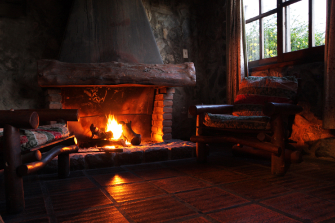

Imagine life without a refrigerator. Meals would be a lot different without the ability to store food. We'd have to consume perishable items right away or risk losing them. Solar battery storage follows a similar principle.
If your state supports net metering (many do by now, but to varying degrees), you'll receive a credit on your utility bill when you supply energy to the grid. Therefore, the electricity you use after the sun goes down will be cheaper than your neighbor's nightly power, since the energy you previously generated will be subtracted from your total consumption.

Aside from bill credits, net metering helps bolster the grid's resiliency during peak demand by supplying more people with power — clean power that you generated. Should you still add solar battery storage to your solar system? As our power grid ages and becomes increasingly unstable, it's wise to make sure your power remains uninterrupted. If you're wondering whether a solar battery storage system is the right move for your household, here are three considerations to help you decide.
If you have a solar system, you've taken an admirable step in reducing your carbon footprint and lowering your energy bill. But without battery storage, you're limited to using solar energy in real-time, when the sun is up.
At night or during the day, when your household energy consumption exceeds your solar production, you'll have to use electricity from the power grid — just like your neighbors without solar.
But unlike them, you can feed any excess energy your panels produce back to the grid via net metering, and receive a credit on your utility bill.
If your state supports net metering (many do by now, but to varying degrees), you'll receive a credit on your utility bill when you supply energy to the grid.
Therefore, the electricity you use after the sun goes down will be cheaper than your neighbor's nightly power, since the energy you previously generated will be subtracted from your total consumption.
Aside from bill credits, net metering helps bolster the grid's resiliency during peak demand by supplying more people with power — clean power that you generated.
Should you still add solar battery storage to your solar system? As our power grid ages and becomes increasingly unstable, it's wise to make sure your power remains uninterrupted. If you're wondering whether a solar battery storage system is the right move for your household, here are three considerations to help you decide.
If Days Without Power Will Hinder Your Lifestyle
For some, the thought of living in a cabin in the woods, reading books by candlelight and cooking on a wood-burning stove is sheer utopia. If this is you, when the grid goes down, you can enjoy the peace that accompanies fully disconnecting.
For others, being unable to work remotely, wash loads of laundry, use the oven and electric range, keep the refrigerator running, watch sports, and occupy children with electronics is the opposite of paradise. If your property uses well water and the power goes out, so does the electric pump that brings water from below ground into your home.
Modern lifestyles depend on electricity. But climate change is impacting the frequency and intensity of extreme weather. Higher sea surface temperatures are increasing hurricane activity in the Atlantic, the number of heat waves has now tripled the long-term average, and flooding has intensified — even in areas where precipitation is declining.*


With battery storage for solar, you can tap into the stored energy from your solar system to keep your electricity on during storms,* planned outages and power failures. During natural disasters, you can stay tuned to the news, receive evacuation updates or even run a water pump to minimize damage to your home.
As more distributed storage comes online, customers will be looking for ways to maximize the value of their solar plus storage systems, in the hopes of breaking even sooner.
If Your State Doesn't Offer One-to-One Net Metering

Each state has a different definition of net metering, based on the decision by their Public Utilities Commissions (PUCs) and local government. These laws were designed to encourage more people to install residential solar systems and add more clean power to the grid, especially during peak demand like hot summer days.
The best policies credit solar customers for the full retail rate of electricity, called "one-to-one" net metering. Think about it this way: if your solar system generates one kilowatt-hour (kWh) of electricity, you can directly reduce your electric bill by one kWh. If that kWh of solar energy is produced when you don't need it, under one-to-one net metering, you'll receive a credit for the full retail value of that kWh when it is used later. Most states offer some form of credit for sending excess power back to the grid, and 29 states have approved one-to-one net metering as of 2021.*
If your state offers anything less than a full retail rate for net metering, or has changed their net metering policy like California, which adopted NEM 3.0 in April of 2023, solar battery storage makes more economic sense. Here's why: when you're using power from the grid at night, you're paying full retail prices. If you're not credited equally in return for the power your panels generate, your energy becomes devalued. In this case, your clean energy is worth more when you store it for personal use.
By adding a solar battery storage system, even if current net metering policies are gutted, solar customers and prospective customers won't have to worry about changes to their credits.
If Your Power Company Implements Time of Use (TOU) Rates
Throughout most of the year, the peak production of your solar system doesn't align with peak energy usage. Aside from summer, electricity demand is generally the highest in the mornings between 7 a.m. and 10 a.m. and in the evenings between 4 p.m. and 9 p.m.* However, solar radiation peaks at noon, when the sun reaches its highest point in the sky. Therefore, your panels are cranking out the maximum amount of energy between 11 a.m. and 4 p.m. So, unless your household consumes the most energy during daytime hours, you're generally relying on electricity from the grid during peak demand — when energy prices are the highest.
If you live in a state that implements TOU or demand-charge rates, adding solar battery storage to your solar panels is a smart move. This way, you can save the solar energy your panels generate when the sun's rays are most intense, and use that stored energy in the evenings and early mornings when electricity from the grid is the most expensive.

Enjoy Living Life Uninterrupted

Still wondering if solar battery storage is worth it? While many solar homeowners find the decision to add storage an easy one, no two households are alike. There are still individuals who eat fresh vegetables from their gardens and have no need for a fridge. Others can go a week without electricity and not blink an eye. But for those who want to protect themselves from power outages, changes to net metering regulation and high electricity rates, add solar battery storage to your home — and enjoy the freedom to live life uninterrupted.

